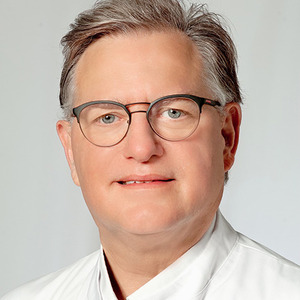
Gerd Auffarth
Power List Profile
Professor and Chairman, Heidelberg University Eye Clinic, Director, The David J. Apple International Laboratory for Ocular Pathology, Heidelberg, Germany.
What is an interesting or little-known fact about you?
In the asian-pacific region it is already known that I like to sing karaoke, which is something rather uncommon in Europe or Germany. I also own an alto and a tenor saxophone.
What was the reason that you decided to pursue ophthalmology / your subspecialty in the first place?
In my second semester of medical school, I already began working on a doctoral thesis in the field of pediatric ophthalmology and neuro-ophthalmology. Since then, ophthalmology in general has completely caught my interest and made me further carry out research projects and publications during my medical studies. My first contact with the field of cataract surgery and intraocular lenses appeared to be in South Carolina at the Storm Eye Institute with David Apple in the early 1990s.
What's been the biggest breakthrough in ophthalmology / your specific field over the last 10 years, and what are the reasons behind your choice?
In the last 10-20 years one cannot really point out a breakthrough event, device or surgical technique in ophthalmology. Primarily the biggest advances have been made with regards to major improvements in diagnostics, not least because of the exploration and usage of artificial intelligence. While intraocular lens surgery with its constant introduction of new models and optic profiles have been in the lead for a long time, cornea transplant surgery (especially the introduction of DMEK surgery) and its development have made huge steps ahead as well. Other fields like glaucoma have been able to extend therapeutic options with minimally-invasive surgery for their patients.
Do you have any strong opinions with which the rest of the field tends to disagree?
I wouldn’t say the rest of ophthalmologists disagree, but as illustrated in my Binkhorst Lecture at the ESCRS 2 years ago there is “No Free Lunch in Optics”. A lot of industry marketing still claims that the perfect intraocular lens with perfect optics is not a problem. Every optics engineer knows that any artificial lens solution is always a compromise in terms of image quality, depth of field and side effects.
Do you have any personal missions for the next 10 years?
For the next 10 years I will certainly still be in charge of my clinic and head of the David Apple laboratory. I am planning some extensions and changes in the laboratory. Additionally, I will support my fellows, who grew up in my clinic and in the David Apple laboratory, so that they can pursue a career in their field and further promote my mission.
